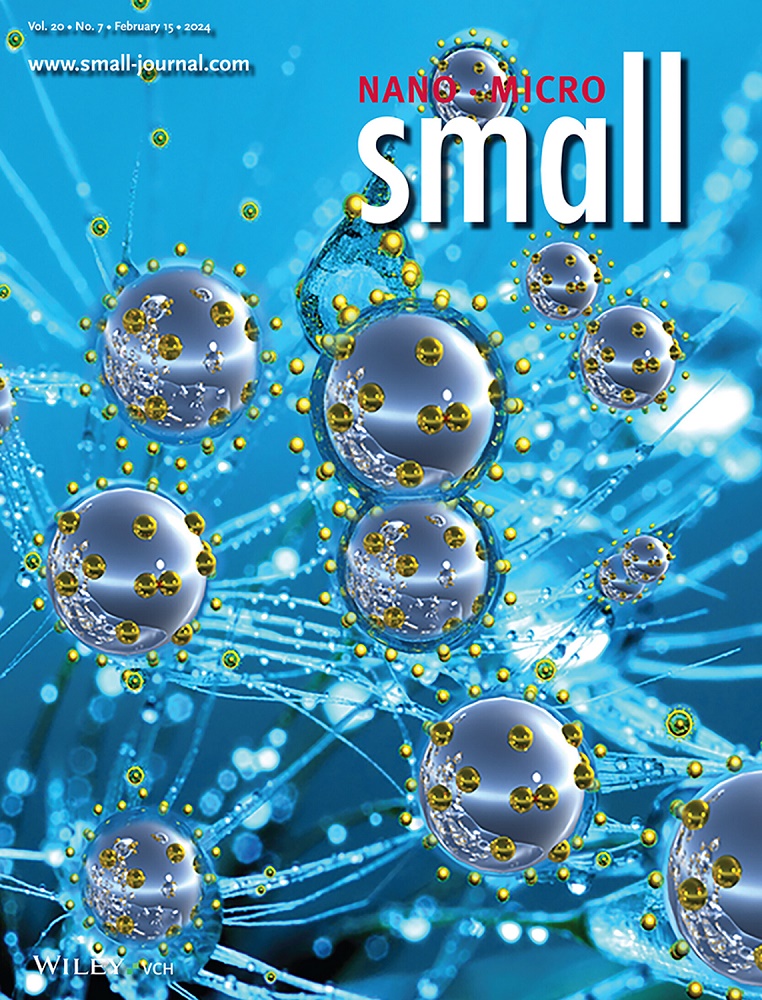蛋黄-壳铁钠Sulfate@Carbon用于提高容量和稳定性的先进钠储存
IF 13
2区 材料科学
Q1 CHEMISTRY, MULTIDISCIPLINARY
引用次数: 0
摘要
硫酸铁钠(NFS)作为一种低成本、高电压的钠离子电池正极材料,已经引起了科学界和工业界的极大兴趣。然而,NFS的钠存储性能远远超出了理论阈值,这仍然是一个艰巨的挑战。本文证明了蛋黄壳NFS@carbon空心球(NFS@CHS)结构可以有效地加快电化学动力学和稳定性。分层多孔碳空心球被筛选出来,通过强大的毛细管约束充分封装NFS纳米级颗粒,从而构建高导电性的电子/离子传输高速公路,以增强电极的反应性和稳定性。令人印象深刻的是,蛋黄壳复合材料在0.1℃时达到了创纪录的120.2 mAh g - 1的可逆容量,在20℃时达到了65 mAh g - 1的优异保留率,以及超过12000次循环的显着工作寿命。系统地研究了NFS@CHS的动力学增强反应机理及其在全细胞中的潜在应用。这项工作将为合理设计和合成面向商业实践的高性能NFS基材料提供有见地的视角。本文章由计算机程序翻译,如有差异,请以英文原文为准。
Yolk‐Shell Sodium Iron Sulfate@Carbon for Advanced Sodium Storage with Enhanced Capacity and Stability
Sodium iron sulfates (NFS) have garnered immense scientific and industrial interest as the cost‐effective and high‐voltage cathode materials of sodium‐ion batteries. However, the sodium storage properties of NFS are far beyond the theoretical threshold, which remains a formidable challenge. Herein, a yolk‐shell NFS@carbon hollow spheres (NFS@CHS) architecture for effectively expediting the electrochemical kinetics and stability is demonstrated. Hierarchically porous carbon hollow spheres are screened out to sufficiently encapsulate NFS nanosized particles by strong capillary confinement, thus constructing highly conductive electron/ion transportation expressways for enhanced electrode reactivity and stability. Impressively, the yolk‐shell composite achieves a record‐high reversible capacity of 120.2 mAh g−1 at 0.1 C, excellent rate retention of 65 mAh g−1 at 20 C, along with a remarkable working lifespan over 12 000 cycles. The kinetic‐enhanced reaction mechanism and its potential application of NFS@CHS in full cells are systematically studied. This work will afford an insightful perspective for rational design and synthesis of high‐performance NFS‐based materials toward commercial practice.
求助全文
通过发布文献求助,成功后即可免费获取论文全文。
去求助
来源期刊

Small
工程技术-材料科学:综合
CiteScore
17.70
自引率
3.80%
发文量
1830
审稿时长
2.1 months
期刊介绍:
Small serves as an exceptional platform for both experimental and theoretical studies in fundamental and applied interdisciplinary research at the nano- and microscale. The journal offers a compelling mix of peer-reviewed Research Articles, Reviews, Perspectives, and Comments.
With a remarkable 2022 Journal Impact Factor of 13.3 (Journal Citation Reports from Clarivate Analytics, 2023), Small remains among the top multidisciplinary journals, covering a wide range of topics at the interface of materials science, chemistry, physics, engineering, medicine, and biology.
Small's readership includes biochemists, biologists, biomedical scientists, chemists, engineers, information technologists, materials scientists, physicists, and theoreticians alike.
 求助内容:
求助内容: 应助结果提醒方式:
应助结果提醒方式:


